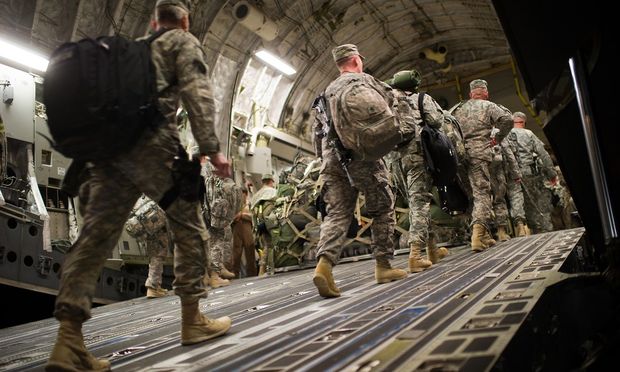For some soldiers, there is, after war, no going home, not figuratively and occasionally not literally. Motorcycle gangs in America might not have ever taken flight were it not for WWII. Not every vet in the 1940s could re-acclimate to quotidian life, even if the G.I. Bill could ease their return materially, help them climb the social ladder. These men had seen hell and now only wanted to be angels in an ironic sense. So they bought bikes and lived in the purgatory in between upstanding U.S. citizen and full-on warrior. These tours of “duty” went on and on.
The Iraq War was a calamity in every sense. We invaded a country for no reason, got 4,500 of our soldiers killed and many more seriously injured and spent at least a trillion dollars in tax money, a good deal of which was bilked by military contractors. I didn’t mention how many Iraqis died needlessly because we didn’t really count them. That wasn’t a priority.
In the aftermath, the Islamic State and Al-Qaeda have turned the wrecked nation into a hotbed of terrorism. Another dubious “dividend” of the misguided invasion is that some U.S. soldiers, unsurprisingly, can’t make it all the way back into domestic life. They still crave a mission–or at least a distraction. Instead of burning rubber on a familiar highway system, a small number are circling back to the source of their frustration, offering their services to anti-terrorist forces in Iraq. From Dave Philipps of the New York Times:
“I may not be enlisted anymore, but I’m still a warrior,” said [Patrick] Maxwell, who left the Marines with an honorable discharge in 2011. “I figured if I could walk away from here and kill as many of the bad guys as I could, that would be a good thing.”
Mr. Maxwell is one of a small number of Americans — many of them former members of the military — who have volunteered in recent months to take up arms against ISIS in Iraq and Syria, even as the United States government has hesitated to put combat troops on the ground. Driven by a blend of motivations — outrage over ISIS’s atrocities, boredom with civilian life back home, dismay that an enemy they tried to neutralize is stronger than ever — they have offered themselves as pro bono advisers and riflemen in local militias.
“More than anything, they don’t like ISIS and want to help,” said Matthew VanDyke, an American filmmaker who has spent time this winter with four American veterans covertly training a militia of Assyrian Christians in northern Iraq to resist ISIS. He is now recruiting more veterans to help, though late in February, the American Mesopotamia Organization, a California-based nonprofit that helped fund the militia, broke ties with him.
In a phone interview from Iraq, Mr. VanDyke said that many veterans spent years honing combat skills in war only to have them shelved in civilian life and that they are eager for a new mission.
“A lot of guys did important stuff overseas and came home and got stuck in menial jobs, which can be really hard,” he said. “We offer them kind of a dream job, a chance to do what they are trained to do without all the red tape and PowerPoints.”•

